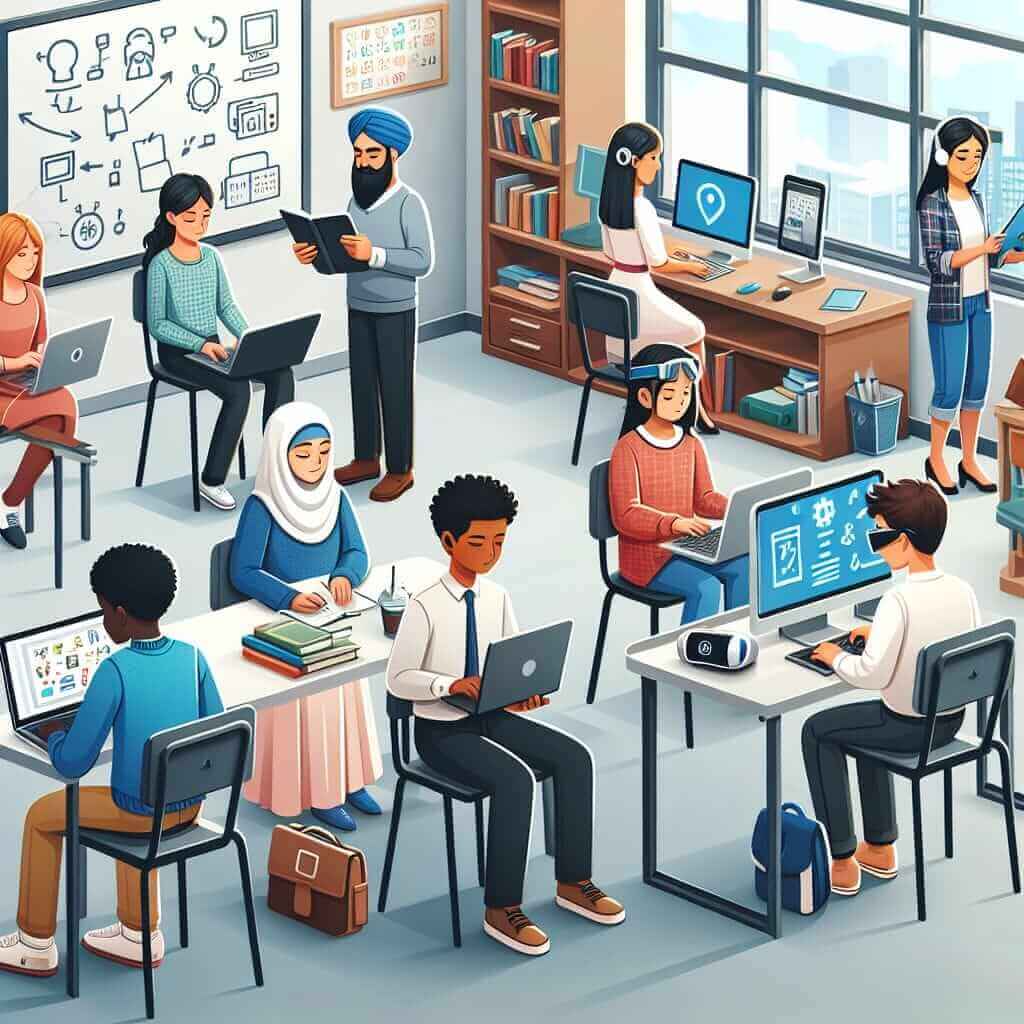The question “How can we make education more accessible to everyone?” is indeed a vital one. In the IELTS exam, such prompts often appear in the writing and speaking sections, requiring examinees to express their views coherently and convincingly. This essay aims to explore solutions to this pertinent issue, integrating advanced vocabulary, grammar, and useful strategies to help IELTS candidates achieve high scores.
Understanding the Concept of Accessibility in Education
Education accessibility means removing barriers that prevent individuals from obtaining education. It is a broad concept encompassing physical accessibility, affordability, and the availability of educational resources and technology.
Key Vocabulary
- Inclusive education – An educational approach that accommodates the diverse needs of all learners.
- Equity in education – Ensuring fair opportunities and treatment in the educational system.
- Digital divide – The gap between those who have access to computers and the internet and those who do not.
- Lifelong learning – Continuous, self-motivated pursuit of knowledge throughout an individual’s life.
- Open educational resources (OER) – Free and accessible teaching and learning materials available online.
Example-Based Explanation
Example 1: Equity in Education
Imagine a task in IELTS Writing Task 2: “Discuss how equity in education can be achieved.” Here, it is essential to define key terms and provide supporting arguments.
Sample Answer:
To achieve equity in education, governments and institutions must implement policies that provide equal opportunities for all students. For instance, scholarships and financial aid can help underprivileged students afford quality education. Moreover, inclusive teaching practices ensure that students with disabilities receive appropriate support, thereby creating a more balanced educational landscape.
Example 2: The Digital Divide
In the IELTS Speaking section, you may be asked: “What are the challenges of making education accessible to everyone?”
Sample Answer:
One significant challenge is the digital divide. Many students, especially in rural areas, lack access to essential technology like computers and the internet. This disparity hinders their ability to participate fully in modern education systems. Governments should invest in infrastructure and provide affordable internet services to bridge this gap.
Practical Application in IELTS Exams
Writing Task 2
Prompt: “Some people think that education should be accessible to everyone regardless of their financial status. To what extent do you agree?”
Structure:
- Introduction – Restate the prompt and express your opinion.
- Body Paragraph 1: Discuss financial barriers and suggest solutions (e.g., scholarships).
- Body Paragraph 2: Highlight the importance of digital accessibility.
- Conclusion – Summarize your main points and restate your opinion.
Speaking Part 2
Cue Card: “Describe a challenge related to making education accessible to all.”
Response Strategy:
- Describe the challenge (e.g., digital divide).
- Explain who is affected and how.
- Discuss potential solutions.
- Conclude with a personal opinion or experience.
Common Mistakes and How to Avoid Them
Mistake 1: Lack of Coherence
When discussing complex issues like education accessibility, ensure your arguments flow logically. Use linking words such as “furthermore,” “for instance,” and “on the other hand” to connect ideas seamlessly.
Mistake 2: Overgeneralization
Avoid using broad statements without evidence. Instead, provide specific examples and data to substantiate your points.
Incorrect: “Everyone should get an education.”
Correct: “Governments should provide scholarships to underprivileged students to ensure that financial constraints do not hinder their educational opportunities.”
Mistake 3: Misusing Advanced Vocabulary
Using complex words incorrectly can negatively impact your score. Ensure you understand the words and their correct contexts.
Incorrect: “The education system needs to be more innovative and complex.”
Correct: “The education system needs to be more inclusive and equitable.”
Effective Preparation Strategies
Reading and Listening Practice
To enhance your understanding of complex topics, regularly read articles and listen to podcasts related to education. Websites like BBC and The Guardian provide valuable insights and high-level vocabulary.
Mock Tests
Take regular IELTS mock tests to familiarize yourself with the exam format and timing. Review your answers critically and seek feedback from experienced instructors.
Vocabulary Building
Create a vocabulary notebook with definitions, example sentences, and synonyms. Practice using new words in your writing and speaking exercises.
Example:
- Word: Equitable
- Definition: Fair and impartial
- Sentence: “Equitable access to education ensures that every student has the opportunity to succeed, regardless of their background.”
Conclusion
Making education more accessible to everyone is a multifaceted challenge that requires concerted efforts from governments, institutions, and individuals. By understanding the key issues and practicing relevant vocabulary and grammar, IELTS candidates can effectively address this topic in their exams. Remember to practice regularly, seek feedback, and continually expand your knowledge to achieve the best results.
Feel free to explore more resources on our website to enhance your IELTS preparation: How to Achieve Equity in Education.

Good luck with your IELTS journey!